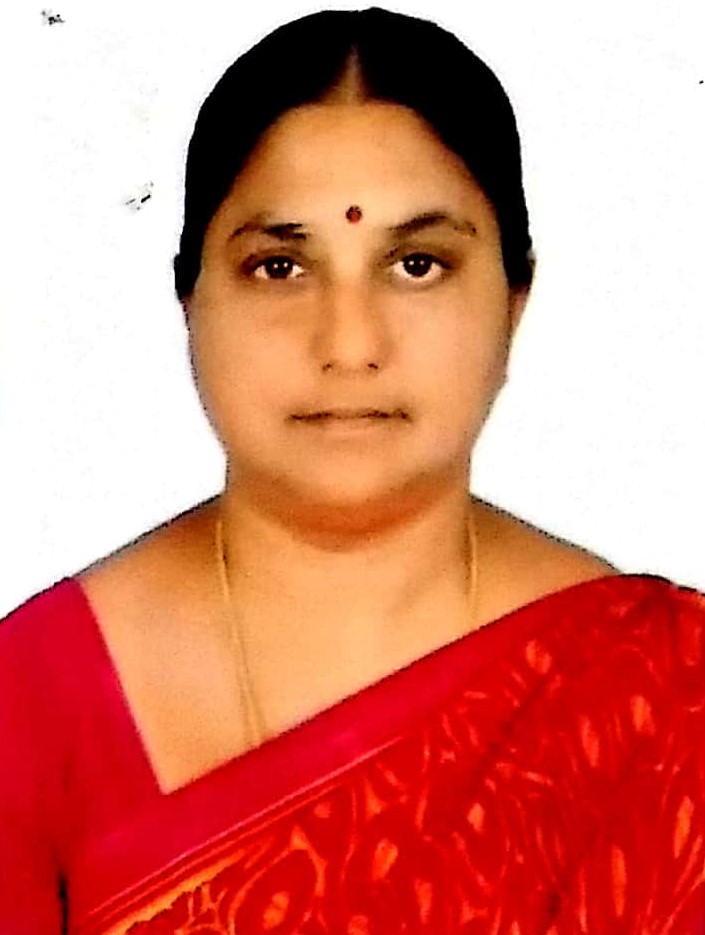
- Name : Prof. P. V. Sree Devi
- Designation : Head of the Department
- Phone:0891-2844843, 4842
- Email : head.ece@andhrauniversity.edu.in
Vision:
To become a global leader in Electronics and Communication Engineering for technological advancement through academic excellence, start-up innovation and social responsibility.
Mission:
To produce graduates with the best technical standards with ideal conduct and character.
To promote interest in research towards technological advancement through industrial consultancy.
To promote Spirit of sportsmanship, National Integration and sense of service to the motherland.
PROFILE
The rapid development in Electronics and Communications initiated the inception of a separate Department of Electronics and Communication in 1983, after the trifurcation of the Department of Electrical Engineering. The department has developed with the help of UGC/State Government grants. Currently the department offers a U.G. B.Tech. Program in Electronics & Communication Engineering day time and part time, a PG M.Tech. Program in Electronic Instrumentation and two PG Programs under Self financing category.
The department has well established Basic & advanced Electronics, Digital Electronics, Analog communications, Microprocessor, VHDL & simulation, Fiber optics, Digital communications Microwaves and Instrumentation laboratories. The department has successfully completed projects namely Mobile Communications, New antenna design for marine RADARS, Fiber optic communications, Entrepreneurship programme, PCB Lab Development Design of Compact Electronic Antenna for Communications, Advanced coded Modulation Techniques for CDMA Communication Systems and ATM Communication Networks. The department has active interaction with reputed institutes like IIT (Kharagpur), LRDE (Govt. of India), CEERI (Govt. of India), University of Praderborn (Germany), IIT (Madras), University of Karlsruhe (Germany), REC (Warangal) and NSTL, Visakhapatnam. The department has an IEEE student chapter.
The Department has collaborative programme through a Memorandum Of Understanding between Centre for Space Science and Technology Education in Asia and Pacific (CSSTE - AP) and Andhra University in conducting an educational programme M. Tech. (SATCOM).
The faculty are actively involved in research in the areas of Mobile Communications, Digital Communications, Antennas, Phased Array Radars, Signal processing and high frequency communications, Fiber optic Communications, Instrumentation, VLSI and Microprocessors.
NAAC Presentation
Programs
| Sl.No | Name of the Program | |||
|---|---|---|---|---|
| UG Programmes | ||||
| 1 | B.Tech. Electronics and Communication Engineering. | |||
| 2 | B.Tech. Integrated - in Electronics and Communication Engineering. | |||
| PG Programmes | ||||
| 1 | M.Tech. Electronic Instrumentation | |||
| 2 | M.Tech. Radar and Microwave Engineering | |||
| 3 | M.Tech. VLSI | |||
| Doctoral Programmes | ||||
| 1 | Ph.D in Electronics and Communication Engineering | |||
PROGRAMME EDUCATIONAL OBJECTIVES (PEOs)
- PEO1: Provide an in-depth acquaintance in the fundamental concepts and cutting-edge areas of engineering discipline and there by excel in professional career and/or higher education in the global scenario.
- PEO2: Train the students to develop hardware and software system models in the field of electronics and communication engineering and to inculcate the research activity as well as innovation and entrepreneurship that caters the prerequisites of Industry and Society.
- PEO3: Develop skill set for solving real life problems, leadership, team work contributing towards the growth and development of society and inculcate professional and ethical attitude with an ability to relate engineering issues in a broader social context.
PROGRAMME OUTCOMES (POs)
- PO 1 Engineering knowledge- Apply the knowledge of mathematics, science, engineering fundamentals to real time electronics and communication problems
- PO 2 Problem analysis- Provide solutions for ECE problems by Identify, formulate, review literature, analyze, designing and conducting experiments, interpreting and reporting the results.
- PO 3 Design/development of solutions- Design and develop solutions for complex engineering problems at feasible and optimal solutions that meet the specified needs with appropriate consideration for the public health and safety, and the cultural, societal, and environmental considerations.
- PO 4 Conduct investigations of complex problems- Use research-based knowledge and research methods including design of experiments, analysis and interpretation of data, and synthesis of the information to provide valid conclusions.
- PO 5 Modern tool usage- Select and apply appropriate techniques, resources, and modern engineering and IT tools including prediction and modeling to complex engineering activities with an understanding of the limitations.
- PO 6 The engineer and society- Apply contextual knowledge to assess industrial, societal and safety related issues and understand consequent relevance to the professional engineering practice.
- PO 7 Environment and sustainability- Understand the impact of the professional engineering solutions in societal and environmental contexts, and demonstrate the knowledge of, and need for sustainable development.
- PO 8 Ethics Apply ethical principles and commit to professional ethics and responsibilities and norms of the engineering practice.
- PO 9 Individual and team work- Function effectively as an individual, and as a member or leader in diverse teams, and in multidisciplinary settings.
- PO 10 Communication- Communicate effectively on complex engineering activities with the engineering community and with society at large, such as, being able to comprehend and write effective reports and design documentation, make effective presentations, and give and receive clear instructions.
- PO 11 Project management and finance- Demonstrate knowledge and understanding of the engineering and management principles and apply these to one's own work, as a member and leader in a team, to manage projects and in multidisciplinary environments.
- PO 12 Life-long learning Recognize the need for, and have the preparation and ability to engage in independent and life-long learning in the broadest context of technological change.
Programme Specific Outcomes (PSOs)
- PSO 1- Graduates will be able to apply fundamental knowledge of Electronics and Communication Engineering to identify, investigate and solve various real-life problems in the field of Electronics.
- PSO 2- Graduates will be able to design and develop systems in the emerging electronics and communication allied disciplines to meet out the industry challenges.
- PSO 3- Graduates will be able to demonstrate the leadership qualities and strive for the betterment of organization, environment and society with professional and ethical responsibilities.